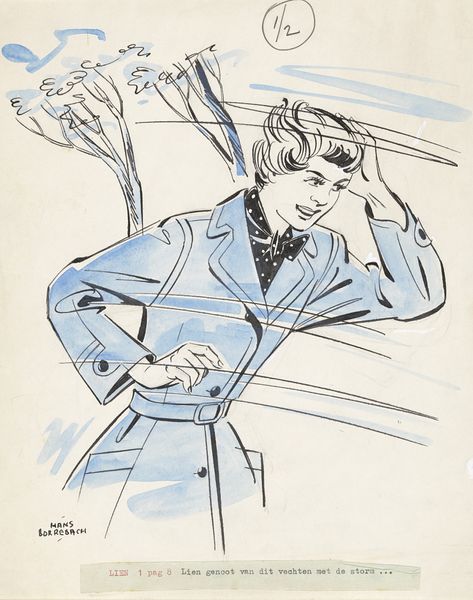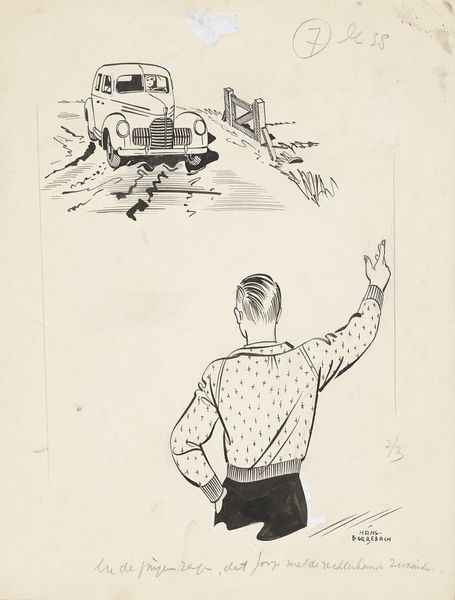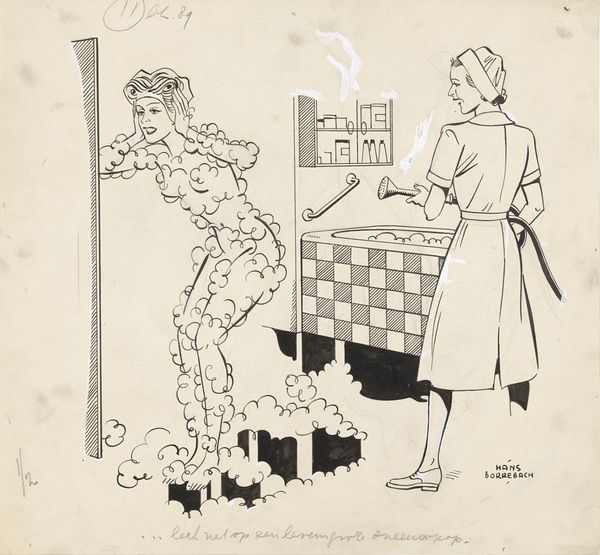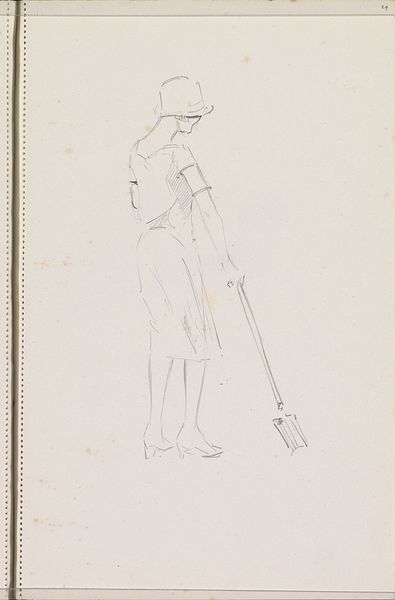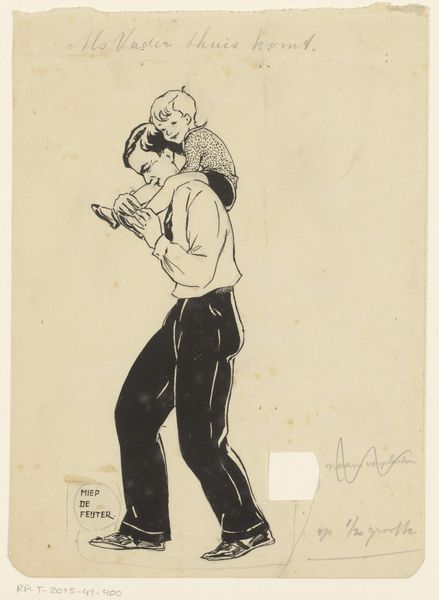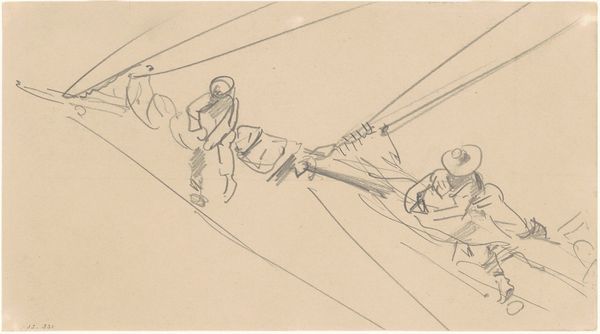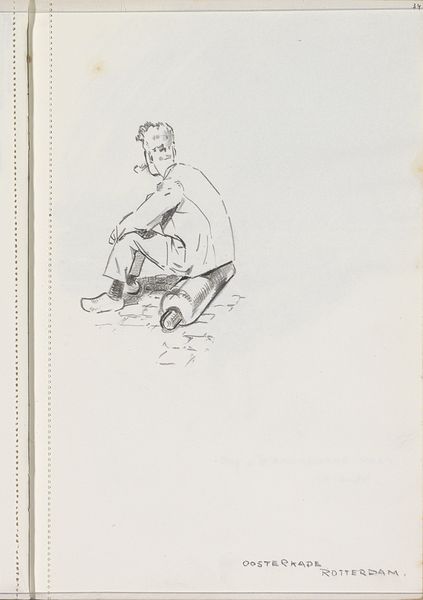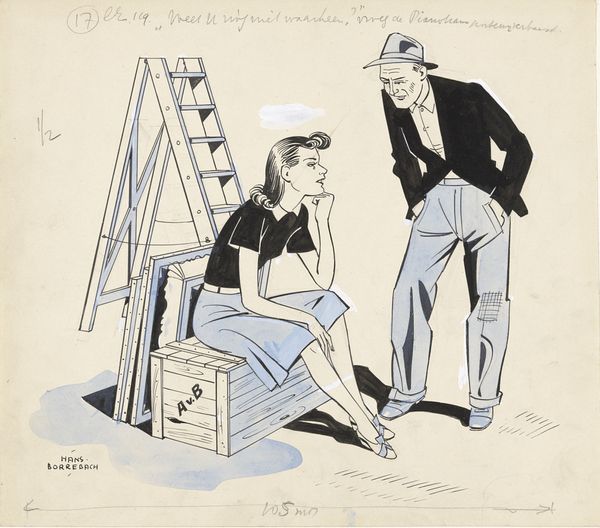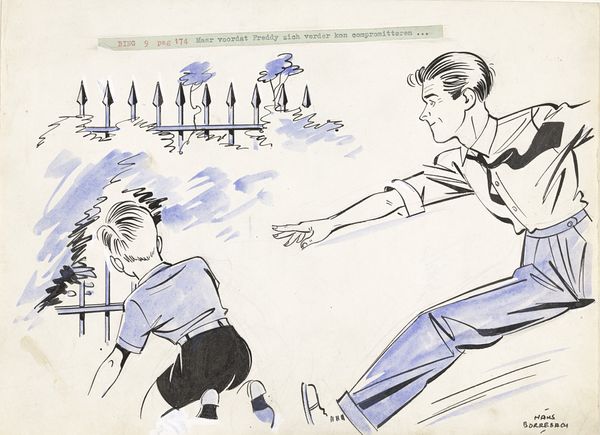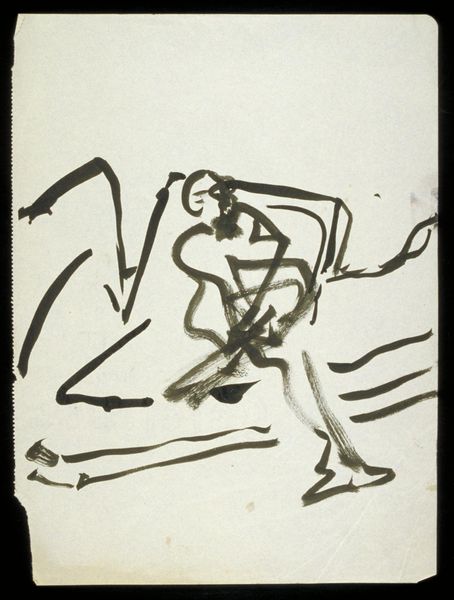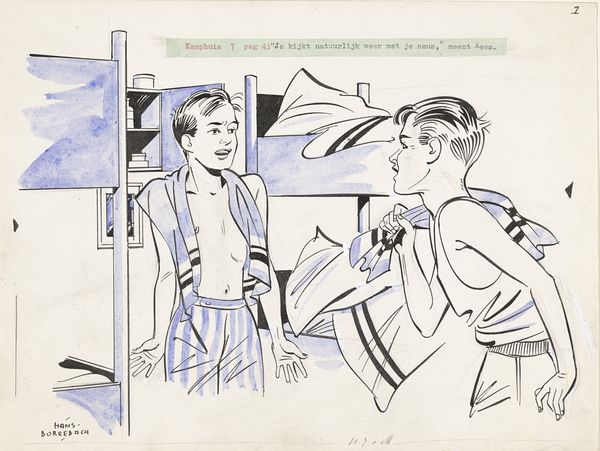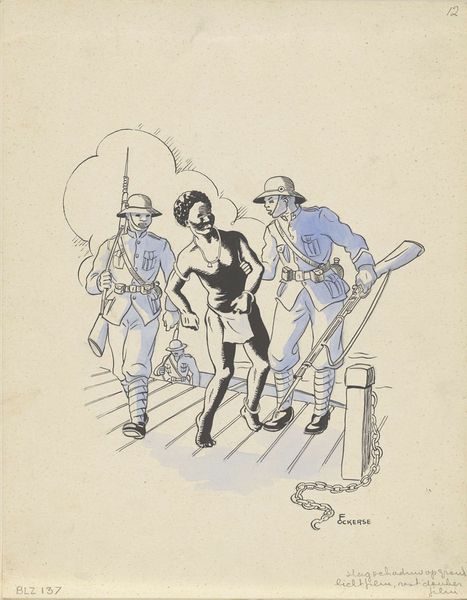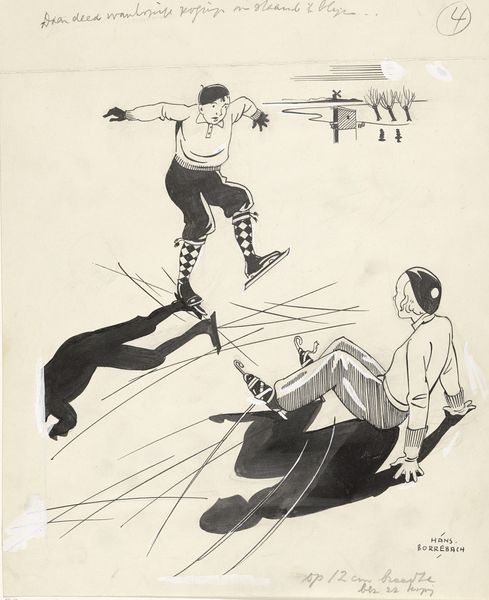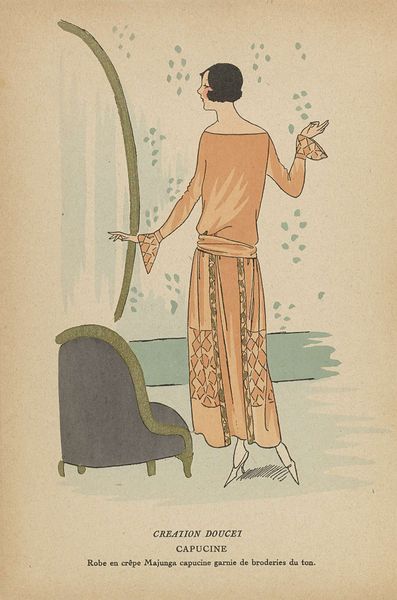
drawing, paper, ink
#
drawing
#
comic strip sketch
#
imaginative character sketch
#
quirky illustration
#
quirky sketch
#
cartoon sketch
#
figuration
#
paper
#
personal sketchbook
#
ink
#
idea generation sketch
#
comic
#
line
#
sketchbook drawing
#
character design for animation
#
genre-painting
#
storyboard and sketchbook work
Dimensions: height 247 mm, width 201 mm
Copyright: Rijks Museum: Open Domain
Curator: Let’s consider this sketch, "Vrouw met emmer op een ladder," or "Woman with bucket on a ladder" by Hans Borrebach. We know it was made sometime before 1954 and it’s rendered in ink and what appears to be light washes on paper. What's your immediate response to this image? Editor: My first impression is one of quiet domesticity tinged with a certain sense of melancholy. The woman, caught mid-action on the ladder, looks both capable and a little isolated. Curator: I find myself drawn to the interplay of line and form. Note how the artist uses confident, almost architectural strokes to delineate the figure against the white space of the page. The lines possess a rhythm, a balance. The slight use of color also defines the forms as well as offers structure to the composition. Editor: Yes, but to focus only on the formal qualities feels like ignoring the story it tells. Here we have a working woman, performing what seems like a mundane task, which perhaps raises questions about labor, gender roles, and the narratives we often overlook. The added text at the bottom even speaks to this as well, further placing her into a very direct action. Curator: Perhaps. But isn’t it possible to appreciate the dynamic tension within the composition itself? The upward thrust of the ladder countered by the downward cascade of water. This establishes a pictorial harmony independent of its socio-political implications. Editor: But art is never truly independent, is it? This work exists within a context. Borrebach was working in a time of immense social change. To ignore the potential commentary, whether intentional or not, feels reductive. It may have a certain formal appeal, yes, but understanding the broader conversations of that time adds depth to our reading. Curator: I appreciate the reading, but for me, it begins and ends with the effective and structured arrangement of space, line, and tone to offer its strength. Editor: And for me, the arrangement serves the story of the forgotten individual within shifting cultural sands. We've each taken something from the piece, highlighting the subjectivity of engaging with art and encouraging visitors to think beyond conventional methods.
Comments
No comments
Be the first to comment and join the conversation on the ultimate creative platform.
